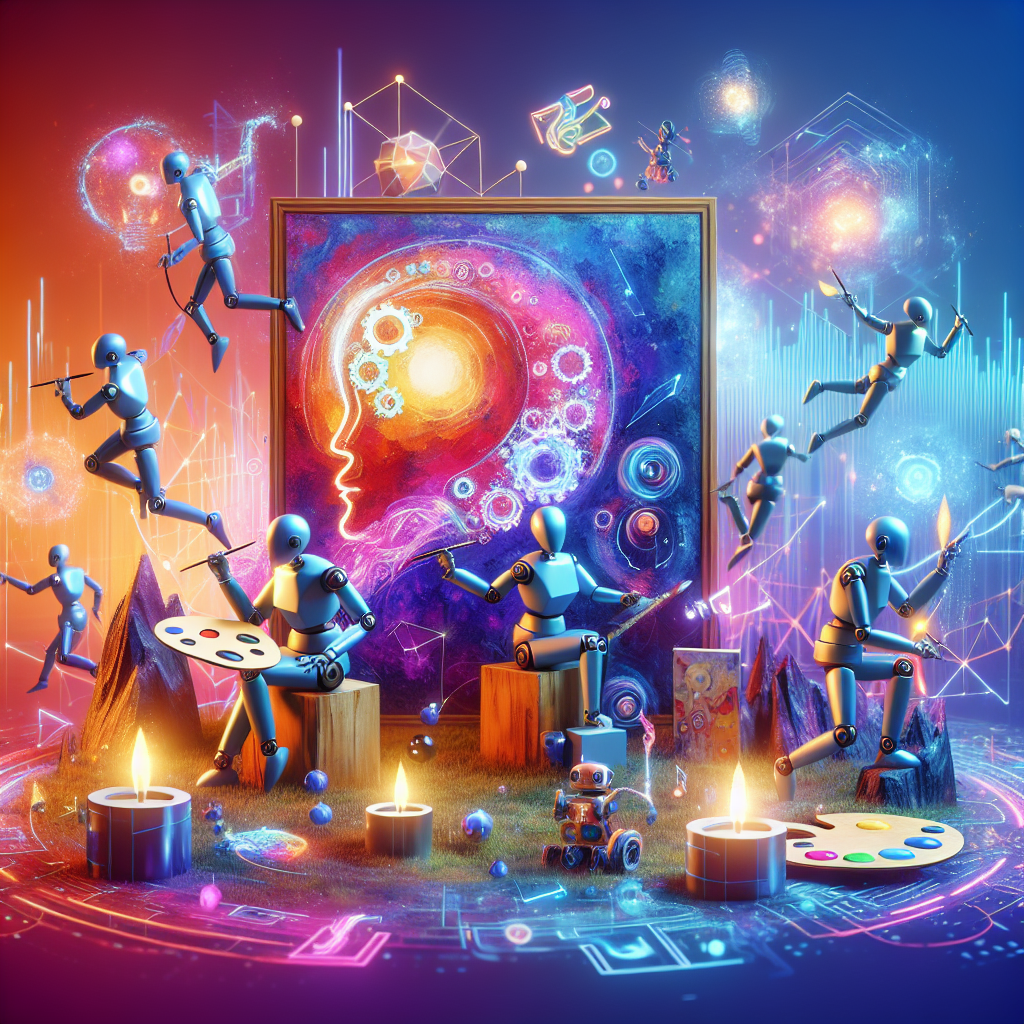The AI Renaissance: How Technology is Reshaping the Creative Landscape
In recent years, artificial intelligence (AI) has become an increasingly powerful tool in the creative fields, reshaping the way we think about the creation of art, music, literature, and more. This AI renaissance is revolutionizing the creative landscape, challenging traditional notions of creativity and pushing the boundaries of what is possible in the realm of artistic expression.
AI technology has advanced rapidly in recent years, with machine learning algorithms becoming increasingly sophisticated and capable of performing tasks that were once thought to be the exclusive domain of human intelligence. This has led to the development of AI systems that are capable of generating original works of art, composing music, writing poetry, and even creating entire novels.
One of the most well-known examples of AI creativity is Google’s DeepDream project, which uses neural networks to generate surreal and dreamlike images. These images are created by feeding a neural network with large amounts of data, which it then processes and interprets to create new and original images based on its learned patterns. The results are often striking and otherworldly, demonstrating the potential of AI to create truly unique and innovative works of art.
In the world of music, AI has also made significant strides in recent years. Companies like Amper Music and AIVA are using AI algorithms to compose original pieces of music, providing musicians and composers with new tools and resources to enhance their creative process. These AI-generated compositions can be customized to fit specific moods or styles, making them a valuable resource for filmmakers, video game developers, and other creatives looking for original music.
AI is also being used to create literature, with companies like OpenAI developing language models that can generate coherent and engaging writing. These AI systems are capable of producing everything from short stories to entire novels, providing authors with a new tool to help them brainstorm ideas, generate new content, and explore new narrative possibilities. While AI-generated writing may not be able to match the complexity and nuance of human-authored works, it is still a valuable resource for writers looking to experiment with new ideas and push the boundaries of their creativity.
The rise of AI in the creative fields has sparked a debate about the nature of creativity and the role of AI in the creative process. Some argue that AI is simply a tool that can be used to enhance human creativity, providing new resources and possibilities for artists and creators. Others worry that AI could replace human creativity altogether, leading to a world where art and culture are produced by machines rather than by human hands.
Despite these concerns, the AI renaissance is likely to continue reshaping the creative landscape in the years to come. As AI technology continues to advance and become more sophisticated, we can expect to see new and innovative uses of AI in the creative fields, pushing the boundaries of what is possible in art, music, literature, and more. The key will be to find a balance between human creativity and AI innovation, harnessing the power of AI to enhance our creative abilities rather than replace them entirely.
FAQs:
Q: Will AI replace human creativity in the future?
A: While AI has the potential to revolutionize the creative landscape, it is unlikely to completely replace human creativity. AI is simply a tool that can be used to enhance human creativity, providing new resources and possibilities for artists and creators. Human creativity will always be a vital and irreplaceable part of the creative process.
Q: How can artists and creators benefit from AI technology?
A: AI technology can provide artists and creators with new tools and resources to enhance their creative process. AI-generated art, music, and literature can inspire new ideas, spark creativity, and push the boundaries of what is possible in the creative fields. Artists and creators can use AI as a tool to experiment with new ideas, explore new possibilities, and push the boundaries of their creativity.
Q: Are there any ethical concerns surrounding the use of AI in the creative fields?
A: As with any technology, there are ethical concerns surrounding the use of AI in the creative fields. Some worry that AI-generated art, music, and literature could lead to a loss of human creativity and originality, while others are concerned about issues of copyright and ownership. It is important for artists, creators, and technologists to consider these ethical concerns and work together to ensure that AI is used responsibly and ethically in the creative fields.

